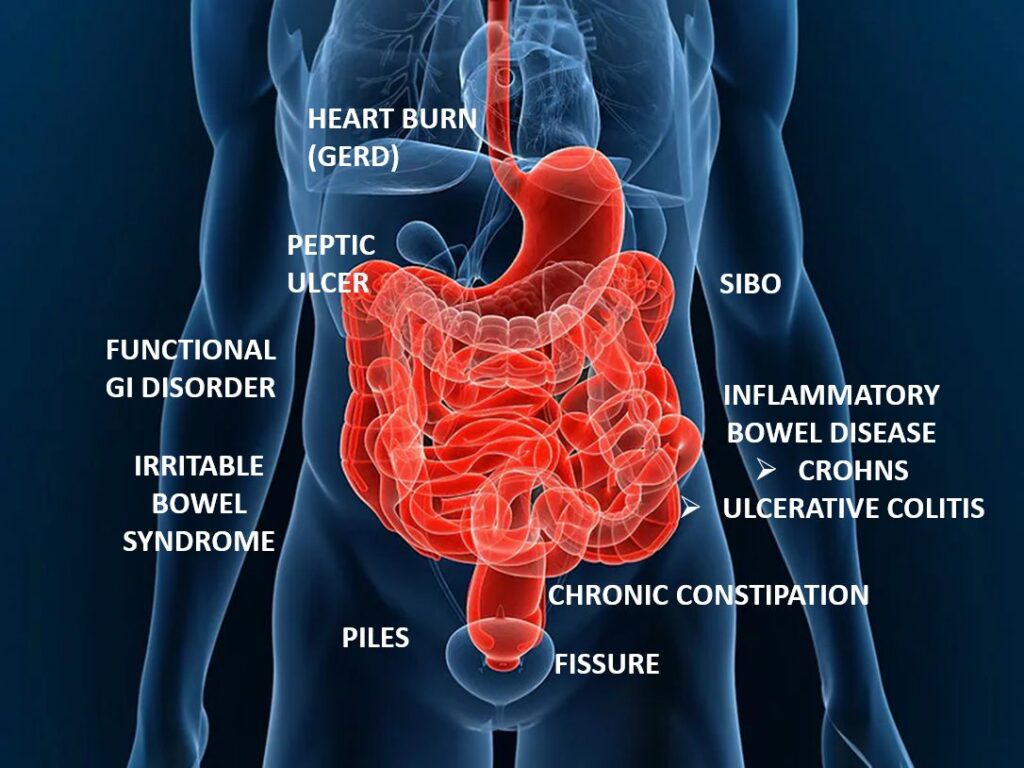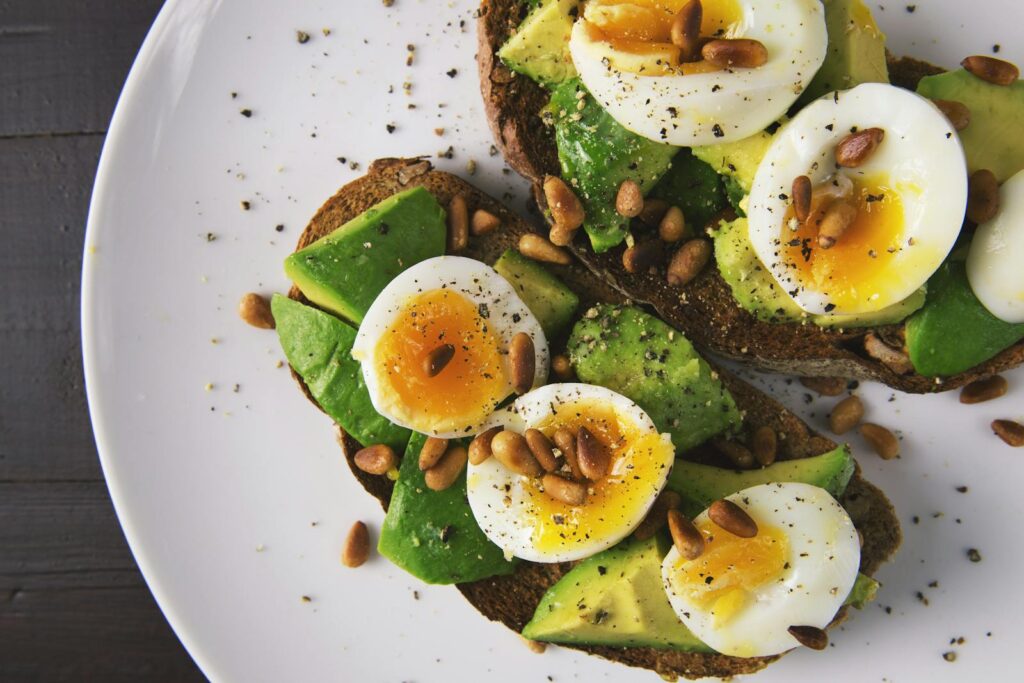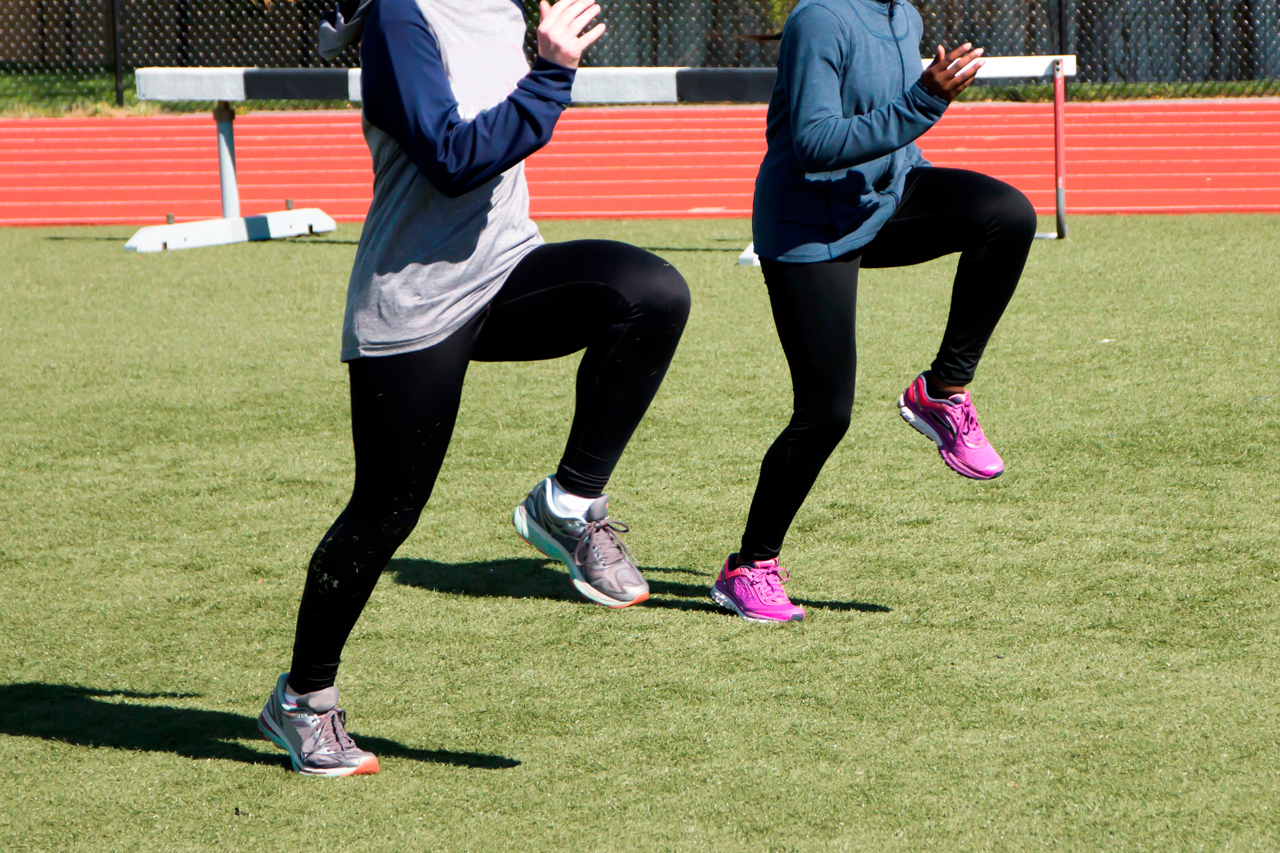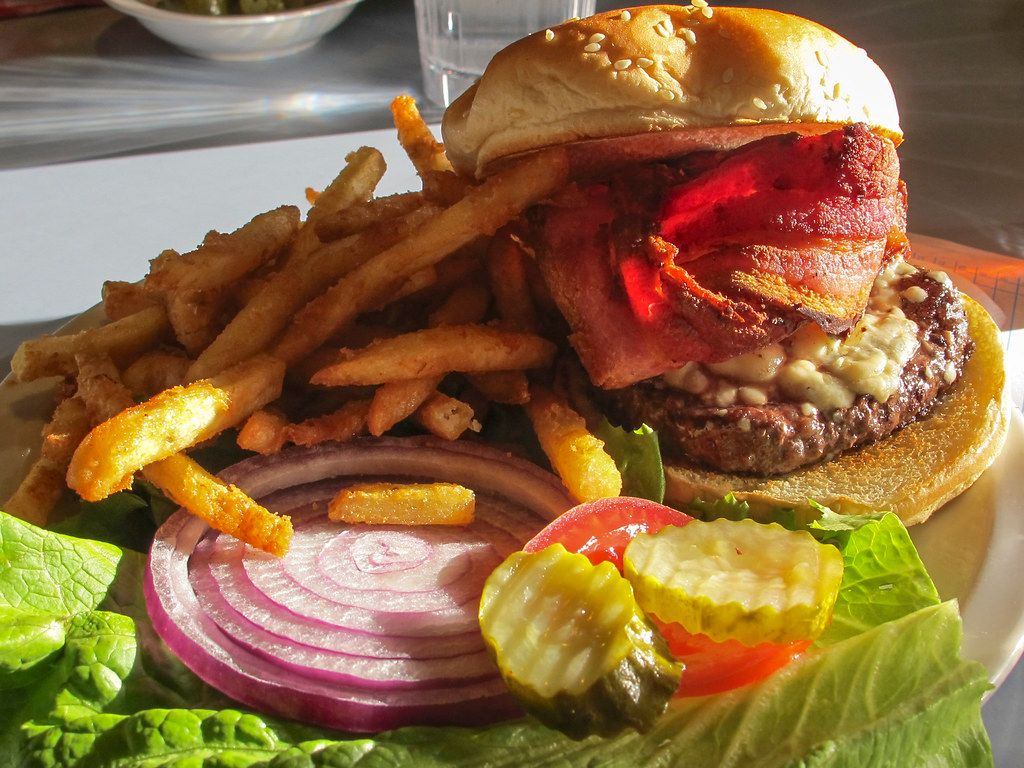
Turning 50 is undeniably a significant milestone, a moment often marked by a fascinating mix of reflection and anticipation. On one hand, you might find yourself experiencing those subtle but noticeable shifts in your body, where what felt effortless yesterday now requires a thoughtful grunt just to tie your shoes. This isn’t a sign of weakness; rather, it’s an undeniable signal that the rules of engagement with your body and lifestyle are evolving.
Yet, this age isn’t about accepting limitations or pretending to be younger than you are. Instead, it heralds the start of a sharper, more intentional chapter—a powerful opportunity for deliberate upgrades that truly serve your body, mind, style, and relationships. It’s about leveraging decades of accumulated wisdom to curate a life that feels more authentic and fulfilling than ever before, moving beyond mere aging to truly living well.
In this spirit, we embark on an exploration of 13 specific areas where men over 50 can make profound and empowering changes. These aren’t about radical overhauls, but rather mindful adjustments that can make all the difference between simply going through the motions and embracing a life of vitality and purpose. Let’s dive into the first six pivotal shifts that can redefine your journey forward.

1. Lifting Like It’s Still 1995
The image of a younger self, perhaps in your 30s, bench-pressing your body weight with ease, might still be fresh in your memory. It felt like a significant flex, a testament to raw strength and youthful vigor. However, as the years advance beyond 50, clinging to this outdated approach to weightlifting isn’t just ineffective; it’s a direct invitation to injury and prolonged discomfort.
Your joints, ligaments, and tendons simply aren’t designed to handle the same level of stress they once did. Attempting those heavy, high-impact lifts that defined your younger years can easily lead to a torn shoulder or other significant orthopedic issues. The body’s capacity for rapid recovery diminishes, and what was once a challenge becomes a guarantee for pain and a potential visit to physical therapy. It’s time to acknowledge this fundamental shift and adapt your training.
The smarter, more sustainable path forward involves a conscious shift from ‘ego-lifting’ to ‘longevity-lifting.’ This means prioritizing lighter weights, controlled movements, and a focus on proper form over sheer poundage. Instead of proving strength, the goal now is to preserve function, build mobility, and ensure you can move pain-free for decades to come. Activities like resistance band training, Pilates, swimming, or long hikes become your allies, building resilience without punishing your aging frame.
Investing in a good trainer who understands the nuances of aging joints can be invaluable, helping you design a regimen that’s rewarding, not punishing. Regular exercise is still crucial for maintaining physical health, improving mobility, and reducing the risk of age-related conditions, but it needs to be the right kind of exercise. It’s about shifting your mindset from competitive workouts to training for life, ensuring every movement feels like a reward for your body, not a tax on it.
Read more about: Collision Control Mastery: The 12 Absolute Best Cars for Drivers Who Need an Extra Helping Hand

2. Sleeping Less Than 6 Hours a Night
The days of pulling all-nighters or surviving on minimal sleep are firmly in the rearview mirror for men over 50. What might have once been a badge of honor or a necessity now serves only to deplete your reserves, leaving you grumpy, forgetful, and prone to dozing off in the middle of conversations. Your body and mind simply cannot function optimally on fumes anymore; the tolerance for sleep deprivation plummets dramatically with age.
Proper sleep is not a luxury; it’s a foundational health habit, particularly as you enter your fifties and beyond. The kind of sleep men over 50 truly need is solid, uninterrupted, and deeply restorative—the kind where you genuinely wake up feeling rested. Think of sleep as essential maintenance for your entire system, rather than a concession to laziness. It’s during these crucial hours that your body repairs itself, consolidates memories, and regulates vital hormones.
Ignoring the call for adequate sleep has far-reaching consequences that extend beyond simple tiredness. Poor sleep accelerates the aging process, fogs your mental clarity, and significantly worsens heart health. It impacts everything from your decision-making abilities to your emotional regulation. Prioritizing quality rest becomes a powerful tool in staying sharp, maintaining cognitive function, and even contributing to a more youthful appearance.
To reclaim the restorative power of sleep, it’s time to cultivate superior sleep hygiene. This means consciously ditching late-night screen scrolling, cutting back on alcohol consumption, and transforming your bedroom into a sanctuary that explicitly signals deep rest. Implement blackout curtains, maintain cool temperatures, and establish a calming wind-down routine that prepares your mind and body for slumber. This isn’t just about getting more hours; it’s about optimizing the quality of those hours for profound physical and mental well-being.
Read more about: The Insider’s Playbook: How Top Realtors Uncover Hidden Neighbor Property Issues Before You Buy

3. Sleeping On an Old, Sagging Mattress
Continuing the discussion on crucial sleep habits, it’s vital to address the literal foundation of your nightly rest: your mattress. Hanging onto that beloved mattress from when your children were in middle school might evoke fond memories, but it’s a terrible disservice to your aging body. Your back, joints, and musculature are simply not built to contend with the inadequate support and uneven surfaces that an old, sagging mattress inevitably provides.
As you navigate your 50s, sleeping on a lumpy, worn-out surface will invariably cause major problems for spinal support and joint comfort. This isn’t merely about superficial discomfort; it directly impacts your body’s ability to recover from the day’s stresses. A poor mattress exacerbates stiffness, promotes misalignment, and can turn what should be a rejuvenating experience into a nightly struggle. It actively works against your body’s natural restorative processes.
Moreover, the detrimental effects extend to muscle recovery, making it significantly harder for your body to repair and rebuild overnight. If you consistently wake up feeling stiff, sore, or more tired than when you went to bed, the problem might not be solely your body; it’s a strong indicator that your bed itself is the culprit. Ignoring these warning signs can lead to chronic pain and reduced mobility, impacting your quality of life during waking hours.
Optimizing your sleep environment is a multi-faceted endeavor, and replacing an old, unsupportive mattress is a cornerstone of this effort. Consider it an investment in your long-term health and well-being, rather than a mere expense. A new mattress designed for proper spinal alignment and pressure relief can dramatically improve sleep quality, support joint health, and facilitate vital muscle recovery, ensuring you rise each morning feeling genuinely refreshed and ready to tackle the day.
Read more about: Don’t Waste Your Money: 14 Walmart Buys That Experts Say to Skip (and What to Choose Instead)

4. Limiting Your Social Circle to Only Male Friends
There’s undeniable value in the camaraderie and shared experiences found within a close circle of male friends. Whether it’s the tradition of poker nights, the casual enjoyment of backyard beers, or simply discussing sports, these bonds are enriching and important. However, allowing this to be your *entire* social universe, to the exclusion of other connections, is a missed opportunity for broader personal growth and cognitive stimulation that becomes especially vital after 50.
When your social circle becomes exclusively homogenous, you inadvertently limit your exposure to diverse perspectives and conversations. Research consistently shows that consciously widening your social net and mixing with a broader array of individuals, including female friends, can significantly boost your mood and keep your brain remarkably sharp. Different social dynamics and conversational topics stimulate your brain in unique ways, fostering adaptability and intellectual vitality.
Indeed, the concept of ‘upgrading your friendships’ means proactively seeking relationships that challenge you, inspire growth, and offer robust support. Friendships that have stagnated, or those based solely on past shared activities without current depth, can become ‘dead weight.’ This phase of life calls for a conscious effort to invest in connections that genuinely elevate your mental health, provide accountability, and keep your social life vibrant and meaningful.
Don’t allow the temptation of staying comfortably within your established bubble to turn you into a recluse. Actively participating in new groups—whether it’s a hiking club, a book club, or volunteering for a cause you believe in—can introduce you to diverse individuals and fresh perspectives. Re-embracing social connections and nurturing relationships with a variety of family, friends, and peers is crucial for reducing feelings of isolation and loneliness, fostering a richer, more engaged existence.
Read more about: Unlock Your Best Self: 12 Essential Habits for Peak Physical Health and Lasting Well-being

5. Letting the Gut Grow
The casual jibe about ‘dad jeans’ often masks a more serious health reality for men over 50: allowing your gut to grow is an issue that extends far beyond mere vanity. As you age, particularly after the age of 50, belly fat has a concerning tendency to shift inward, accumulating around your vital organs. This type of fat, known as visceral fat, is precisely the kind that medical professionals find most worrying due to its strong links to various chronic health conditions.
While the goal isn’t necessarily to achieve a super-lean physique, it is profoundly important to prevent that ‘spare tire’ from morphing into something resembling a ‘tractor tire.’ This isn’t about chasing an unrealistic aesthetic; it’s about safeguarding your internal health. Visceral fat is metabolically active and can contribute to inflammation, insulin resistance, and an increased risk of heart disease and type 2 diabetes, even if your overall weight doesn’t seem excessively high.
It’s also crucial to give up the old-school mindset that weight gain is *always* solely a result of eating too much. While calories certainly matter, they don’t tell the whole story after 50. Changes in hormones, a natural decline in muscle mass (which lowers your metabolic rate), and a generally slower metabolism all play significant roles. You might find yourself eating much the same way you always have, yet still noticing incremental weight gain.
Therefore, managing your waistline requires a more nuanced, science-backed approach that combines realistic fitness plans with thoughtful nutrition. Prioritizing nutrient-dense foods—fruits, vegetables, lean proteins, and whole grains—and incorporating regular exercise become essential components of a proactive strategy. This ensures that you’re not just maintaining a desirable appearance, but actively reducing internal health risks and supporting long-term vitality and overall physical well-being.
Read more about: Beyond the Script: 12 Iconic Moments Where Genuine Joy, Genius Improv, and Happy Accidents Made Movie History
6. Wearing the Same Boxers For a Decade
Let’s be candid: no man’s underwear drawer, especially one belonging to someone over 50, should be a graveyard of stretched-out elastic, mystery stains, and fabrics that have long lost their integrity. Holding onto the same boxers for a decade isn’t just a sign of frugality or sentimentality; it’s a genuine problem that impacts both hygiene and health. It’s time for a definitive clear-out; those old pairs have more than earned their retirement.
The issue goes beyond the visual appeal (or lack thereof). Old boxers, particularly those made from synthetic fabrics, tend to trap heat and moisture, creating an environment ripe for sweat buildup. This humid, less-than-ideal condition can lead to a host of uncomfortable issues ‘down below,’ from skin irritations to increased risk of fungal infections. It’s a small detail that can have a surprisingly large impact on daily comfort and overall personal health.
The solution is refreshingly simple and effective: opt for breathable, natural fabrics like cotton. Cotton allows for better air circulation, wicks away moisture more efficiently, and provides a much more comfortable experience throughout the day. This shift isn’t about embracing fleeting fashion trends; it’s about making a practical, health-conscious choice that reflects a broader sense of self-respect and attentiveness to one’s well-being.
While we often focus on external attire as a reflection of style and self-respect, the same principle applies to what lies beneath. Dressing well in your 50s extends to ensuring that every layer, including your underwear, contributes to your comfort, health, and dignity. It’s a subtle yet significant upgrade that makes a tangible difference in how you feel, demonstrating that you value your physical comfort and hygiene at every level. This small change is part of a larger commitment to curating a life that truly fits you better than ever before.”
Mastering Midlife: Embracing Smarter Choices and Sustained Health for Men Over 50
As we’ve seen, turning 50 is less about slowing down and more about smart, intentional acceleration into a better version of yourself. The first half of our journey highlighted critical physical and social adjustments, setting a robust foundation for the decades ahead. Now, let’s delve deeper into seven more pivotal areas where mindful changes can lead to sustained health, sharper living, and a truly fulfilling midlife. From diet to emotional foresight, these adjustments empower men to thrive, not just survive.

7. Eating Like a Teenager
That nostalgic notion of fueling your body with pizza, milkshakes, and late-night chili dogs might bring a smile to your face, but clinging to such a diet after 50 is a direct recipe for discomfort and health complications. While it might have been ill-advised in your younger years, your digestive system now is far less forgiving and operates at a significantly slower pace. This means that a poor diet fuels more than just heartburn; it impacts your overall well-being.
Your body’s ability to process and absorb nutrients changes with age. Consistently indulging in greasy and deep-fried foods places undue stress on an already evolving system, leading to uncomfortable issues and hindering proper bodily function. It’s not about transforming your diet into something bland or unappealing; it’s about making smarter, more conscious choices that respect your body’s current needs and capabilities.
Embracing healthier eating habits doesn’t mean sacrificing flavor or enjoyment. Instead, it invites you to explore nutrient-dense foods such as vibrant fruits, crisp vegetables, lean proteins, and wholesome grains. Men over 50 are increasingly prioritizing a balanced and mindful approach to eating, recognizing that these choices are fundamental to supporting long-term health and vitality. This shift empowers you to nourish your body effectively, ensuring it has the fuel it needs for sustained energy and resilience, rather than taxing it with foods that work against its natural processes.
Read more about: Seriously Where Did They Go? 6 Legendary Games That Vanished From Arcades: Unearthing the Myths

8. Skipping Stretching
If your knees feel stiff and your back creaks like an old lawn chair, daily stretching might be the missing link in your routine. It’s a well-known fact that mobility naturally declines as we enter our 50s and beyond, but many men underestimate just how serious this decline can become and, more importantly, how easily it can be mitigated. Skipping even a few minutes of stretching each day is a silent contributor to this increasing stiffness and reduced range of motion.
Mobility is not merely about flexibility; it’s about preserving function and ensuring you can move pain-free. When joints and muscles are not regularly moved through their full range, they become tighter, less pliable, and more prone to injury. This isn’t about aspiring to be a yoga guru on a beach at sunrise; simple, consistent movements can make a profound difference. Just a few minutes of targeted stretching while your coffee brews in the morning can be enough to kickstart your body and keep it limber.
Prioritizing joint and bone health through regular motion is crucial for keeping things lubricated and strong. If you’re consistently waking up feeling stiff, or find yourself creaking up the stairs, these are clear signals from your body that should not be ignored. Integrating stretching into your daily life is a powerful, proactive step toward maintaining balance and flexibility, allowing you to stay active and engaged in life for decades to come, ensuring movement feels like a reward, not a punishment.
Read more about: The 15 Most Common Lies Car Salespeople Tell to Rush Your Purchase: A Consumer’s Guide

9. Driving Long Distances Without Breaks
While you might feel perfectly fine behind the wheel, especially during a long road trip, your legs and lower back likely have a different story to tell. For men over 50, the cumulative effect of prolonged sitting without a break can have significant negative impacts on your circulation and can lead to stiffening of your joints. What once felt like a minor inconvenience in younger years can now contribute to discomfort and even exacerbate existing conditions.
Ignoring the body’s signals during long drives isn’t a sign of strength or endurance; it’s an oversight that can create unnecessary problems. The lack of movement restricts blood flow, potentially leading to leg cramps, swelling, and a heightened risk of deeper circulatory issues. Furthermore, maintaining a static posture for extended periods puts continuous strain on your lower back and hips, making it much harder for your body to recover once you finally reach your destination.
Making short, regular stops to stretch your legs and move your body is precisely what your system needs to counteract these effects. These breaks aren’t about being weak; they are a smart, self-care practice that supports your physical well-being. By integrating brief pauses into your travel plans, you can improve circulation, reduce joint stiffness, and arrive at your destination feeling much more refreshed and comfortable. It’s a simple adjustment that can prevent considerable discomfort and enhance your overall travel experience, ensuring you’re proactively caring for your body instead of causing it more problems.
Read more about: The Unseen Architects: 12 Pivotal Innovations That Forever Changed the Landscape of Film Production

10. Using Hair Products From the 80s
It’s time for an honest assessment of your grooming routine, particularly the hair products that might have been staples since high school. That crusty gel or heavy pomade from decades past is doing your hair, especially if it’s thinning, no favors whatsoever. These outdated products can actually make your hair look greasy, weighed down, or even patchy, detracting from a polished appearance rather than enhancing it.
As men age, hair texture and density often change, necessitating a shift in the products used. What worked for a full, thick head of hair in your youth might now be too heavy, too shiny, or simply inappropriate for your current hair type. Clinging to old habits can inadvertently highlight thinning areas or create an unnatural, stiff look that doesn’t reflect a mature sense of style. The motto “less is more” becomes particularly relevant for your scalp and hair as you navigate your 50s.
Consider opting for lighter, more modern products designed to add texture and volume without the heavy, shiny finish. Mousse, styling creams, or even light sprays can offer a more natural, sophisticated look that complements your age and hair condition. Think about investing in products that nourish your scalp and hair, much like you would for your skin. Upgrading your haircare isn’t about vanity; it’s about presenting a refined image and feeling confident in your appearance, demonstrating an attentiveness to your well-being that extends to every detail.
Read more about: 12 Infomercial Dynasties: How Late-Night Pitches Built Unforgettable Fortunes and Enduring Legacies

11. Competing With Younger Men at the Gym
Walking into the gym and seeing a guy half your age slamming weights in the corner can be tempting to try and match. However, for men over 50, attempting to keep pace with younger gym-goers is a philosophy that no longer serves your body, and in fact, can be detrimental. Your recovery time is slower, and your joints simply don’t bounce back with the same resilience they once did. This isn’t a limitation; it’s a fundamental biological reality that smart men acknowledge and adapt to.
The goal of exercise after 50 shifts dramatically from proving strength or achieving peak performance to prioritizing longevity and mobility. Punishing workouts that leave you feeling broken the next day are counterproductive. Instead of engaging in ‘ego-lifting,’ which can lead to injury and prolonged discomfort, the focus should be on ‘longevity-lifting’—controlled movements with lighter weights, proper form, and activities that preserve function rather than straining your frame. Think of it as training for life, not for a competition.
This means embracing movement that builds resilience, flexibility, and balance without the risk of injury. Activities like resistance band training, Pilates, swimming, or long hikes become invaluable allies in maintaining physical health and feeling good. You have nothing to prove to anyone else in the gym. The true measure of success is choosing workouts that leave you feeling energized and capable the next day, rather than in pain. It’s about cultivating a rewarding exercise regimen that supports your long-term well-being and allows you to stay active and vibrant for years to come.
Read more about: Agnes Keleti: A Centennial Legacy of Resilience – How a Holocaust Survivor Became an Olympic Gymnastics Legend

12. Believing Weight Gain is Always From Eating Too Much
For decades, the conventional wisdom surrounding weight gain has often been boiled down to a simple equation: too many calories in, not enough calories out. While calories undoubtedly matter, for men over 50, this old-school mindset is an oversimplification that fails to account for the complex physiological shifts happening within the body. Believing that every pound gained is solely a result of overeating can lead to frustration and a sense of defeat, ignoring the actual science of aging.
Once you turn 50, your body undergoes significant internal changes that play a considerable role in weight management, often independent of major dietary shifts. Hormonal fluctuations, a natural decline in muscle mass (which inherently lowers your metabolic rate), and a generally slower metabolism all contribute to how your body processes food and stores fat. You might find yourself eating much the same way you always have, yet still noticing incremental weight gain. This isn’t a personal failing; it’s a biological reality.
Understanding these nuanced factors is empowering. It shifts the focus from simple calorie counting to a more holistic approach that considers your body’s evolving needs. Instead of blaming yourself, you can look at the actual science behind aging, which goes beyond just your plate. This means prioritizing nutrient-dense foods, engaging in the right kind of exercise to preserve muscle mass, and being open to expert guidance. It’s about making informed choices that align with your body’s current metabolic state, leading to more sustainable and less frustrating results in managing your weight and overall health.
Read more about: Seriously, Where Did They Go? 9 Legendary Fishing Lures That Vanished From Our Tackle Boxes!

13. Taking Too Many Over-The-Counter Medicines
It’s a completely normal experience to feel aches and pains more frequently as you cross the threshold of 50. However, allowing this increased discomfort to lead to a daily reliance on over-the-counter painkillers like ibuprofen is not a sustainable or healthy habit. While these medications offer temporary relief, consistent, daily use can be profoundly detrimental to several vital bodily systems, creating more problems than they solve in the long run.
Your stomach lining and kidneys, in particular, are not designed to withstand the daily assault of certain pain relievers. Regular use can lead to gastrointestinal issues, including ulcers and indigestion, and can significantly strain kidney function, potentially leading to long-term damage. Furthermore, some painkillers can elevate blood pressure, which is a serious concern for many men over 50 who may already be managing cardiovascular health.
Painkillers are meant for occasional relief, not as a daily habit to mask underlying issues. The smarter, more proactive approach is to work on figuring out what’s actually causing your pain, rather than simply silencing its symptoms. This might involve consulting with your doctor, exploring physical therapy, optimizing your diet, or incorporating stretching and gentle exercise. Owning your health numbers and addressing root causes through annual physicals and screenings is true power; it’s about prevention and informed management, ensuring you treat your body with the long-term care it deserves.
Read more about: Unlock Your Brain’s Full Potential: 14 Essential Steps for Lifelong Cognitive Health
Embracing these shifts isn’t about accepting limitations; it’s about seizing the incredible opportunity that midlife presents. It’s a chance to discard habits that no longer serve you and to proactively build a life that is richer, healthier, and more aligned with who you want to be. By making these thoughtful adjustments, you’re not just aging; you’re truly living, stepping into your best decades yet with purpose, vitality, and unwavering confidence. Your 50s and beyond can truly be your sharpest, most intentional chapter, full of meaningful upgrades that enhance every facet of your existence.



